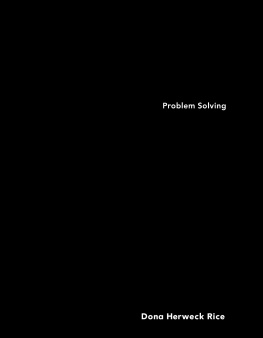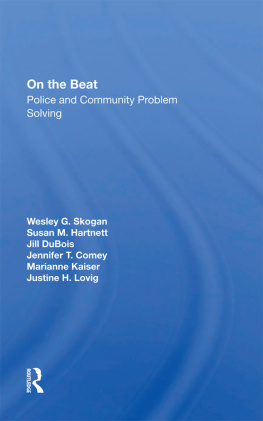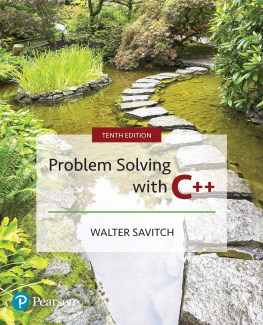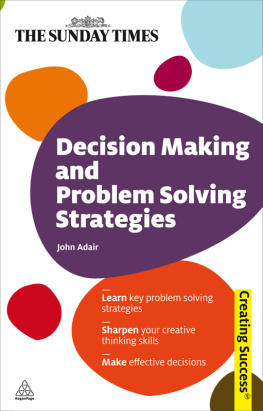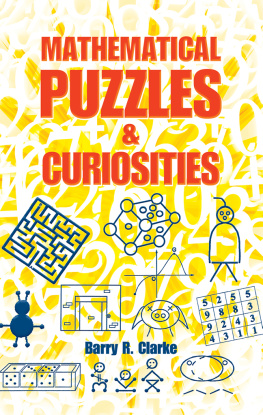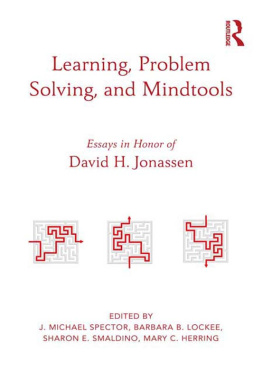Ronald Clarke - Become a Problem-Solving Crime Analyst
Here you can read online Ronald Clarke - Become a Problem-Solving Crime Analyst full text of the book (entire story) in english for free. Download pdf and epub, get meaning, cover and reviews about this ebook. year: 2003, publisher: Taylor & Francis, genre: Home and family. Description of the work, (preface) as well as reviews are available. Best literature library LitArk.com created for fans of good reading and offers a wide selection of genres:
Romance novel
Science fiction
Adventure
Detective
Science
History
Home and family
Prose
Art
Politics
Computer
Non-fiction
Religion
Business
Children
Humor
Choose a favorite category and find really read worthwhile books. Enjoy immersion in the world of imagination, feel the emotions of the characters or learn something new for yourself, make an fascinating discovery.

- Book:Become a Problem-Solving Crime Analyst
- Author:
- Publisher:Taylor & Francis
- Genre:
- Year:2003
- Rating:4 / 5
- Favourites:Add to favourites
- Your mark:
- 80
- 1
- 2
- 3
- 4
- 5
Become a Problem-Solving Crime Analyst: summary, description and annotation
We offer to read an annotation, description, summary or preface (depends on what the author of the book "Become a Problem-Solving Crime Analyst" wrote himself). If you haven't found the necessary information about the book — write in the comments, we will try to find it.
Become a Problem-Solving Crime Analyst — read online for free the complete book (whole text) full work
Below is the text of the book, divided by pages. System saving the place of the last page read, allows you to conveniently read the book "Become a Problem-Solving Crime Analyst" online for free, without having to search again every time where you left off. Put a bookmark, and you can go to the page where you finished reading at any time.
Font size:
Interval:
Bookmark:


John Eck

University College London
2 Park Square, Milton Park, Abingdon, Oxon OX14 4RN
711 Third Avenue, New York, NY 10017
A catalogue record for this book is available from the British Library
Ronald Clarke is Professor of Criminal Justice at Rutgers, The State University of New Jersey, and Visiting Professor at the Jill Dando Institute of Crime Science. He worked for many years in the Home Office Research and Planning Unit where he contributed to the development of situational crime prevention and the British Crime Survey. He has recently undertaken case studies of problem-oriented policing together with Herman Goldstein. He helped to develop the Center for Problem-Oriented Policing and the Problem-Oriented Guide Series for the US Office of Community Oriented Policing Services. Dr Clarke is chair of the judges for the annual Herman Goldstein Award for Excellence in Problem-Oriented Policing. He can be reached at: rclarke@andromeda.rutgers.edu

John Eck is Professor of Criminal Justice at the University of Cincinnati. He has contributed to the development of problem-oriented policing since 1984 when he studied the first full scale attempt to implement the concept in the United States at Newport News, Virginia. He helped to develop a number of now standard techniques in problem solving, including the SARA model and the crime analysis triangle. He was a cofounder of the International Problem-Oriented Policing Conference held annually in San Diego. Dr Eck has served as consultant to the London Metropolitan Police and since 1999 has been a judge for the Tilley Award for Excellence in Problem-Oriented Policing. He can be reached at: john.eck@uc.edu


Font size:
Interval:
Bookmark:
Similar books «Become a Problem-Solving Crime Analyst»
Look at similar books to Become a Problem-Solving Crime Analyst. We have selected literature similar in name and meaning in the hope of providing readers with more options to find new, interesting, not yet read works.
Discussion, reviews of the book Become a Problem-Solving Crime Analyst and just readers' own opinions. Leave your comments, write what you think about the work, its meaning or the main characters. Specify what exactly you liked and what you didn't like, and why you think so.

